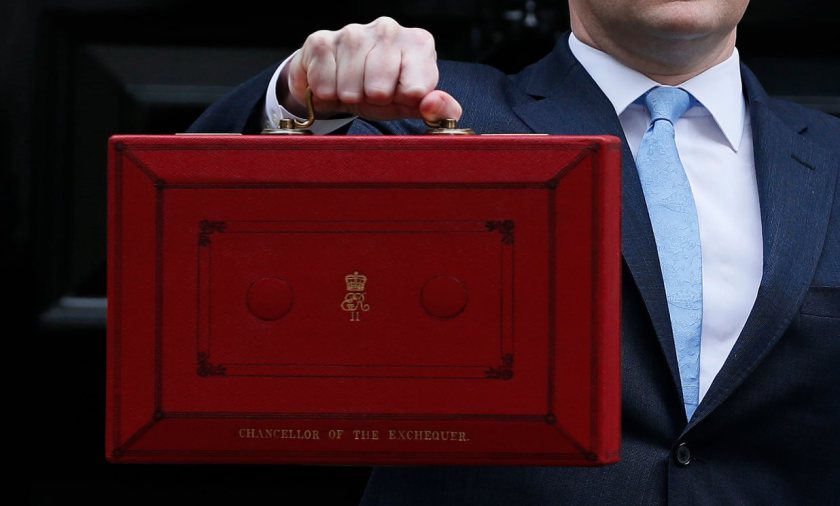-

Autumn Statement: Transport
-
30th November 2015
-
On Wednesday in its Autumn Statement the government revealed a revised spending plan over the next Parliament. One of the headlines has been that the Department for Transport will undergo a 37% budget cut over the lifetime of this Parliament. This cut is the largest of any government department. In our Autumn Statement review we have looked at some of the key transport news.
What the Chancellor has said
The government has pledged to increase investment in infrastructure by 50% to £61billion over the lifetime of this Parliament. This may sound like a lot, but it is important to remember that HS2 is also accounted for as part of this sum.
The much vaunted ‘Northern Powerhouse’ has remained on the Chancellor’s agenda with a pledge of £13billion of investment in the north. Part of this funding is going to be used to deliver smarter and more integrated ticketing systems.
The government has pledged £15billion toward its Road Investment Strategy, which will enable resurfacing over 80% of the strategic road network, and deliver over 1,300 miles of additional lanes. As part of road investment the government have also promised a ‘pothole’ fund of £250 million over the next five years, to further aid road maintenance.
The Chancellor has promised £475million over the next five years to fund local transport projects. It is hoped this will allow local areas to bid for projects that would be too expensive for them to pay for by themselves, Lowestoft Third River Cross and North Devon Link Road were cited as two such examples.
There will be an overall departmental resource saving of 37% by 2019-2020. In part the saving will come from reducing the subsidies paid to rail franchises. The government has also promised to completely cut the annual £591 million grant it pays to Transport for London. It is understood this funding will not affect already planned government infrastructure investment, in project such as Tube upgrades.
The Bus Service Operators Grant (BSOG) has been protected, and funding will remain at current levels, for the time being.
What we’re saying
First and foremost the protection of BSOG from further cuts represents really good news for the transport sector, and the Campaign for Better Transport deserve an enormous amount of credit for their hard work on this issue. This fund totals £250 million, and a 2014 survey of community transport operators carried out by the Community Transport Association found that 94% of respondents said they were either completely reliant, or to some extent reliant, on this funding. These results are an indication of just how important this funding is in supporting accessible and inclusive transport.
More broadly, the Autumn Statement is a mix of good and bad news for the transport sector, and it’s not clear where further spending cuts in transport will be made during this Parliament. It is good news that the Road Investment Strategy has received additional funding, and an improvement in road surfaces will help with long-term vehicle maintenance. Similarly, 1,300 miles of additional road could help to reduce traffic.
It is good to see 50% increase in capital expenditure in infrastructure, but with a departmental cut of 37% there is a concern that there will not be the resources to deliver these massive infrastructure projects as efficiently as possible. The Financial Times has noted that a cut to departmental spending, alongside the rehashing of previously announced policies such as the Road Investment Strategy, casts into doubt the Chancellor’s assertion that ‘we are builders.’ Furthermore, given that capital funding is disproportionately weighted toward London other regions of the country may not benefit from this additional investment. This additional funding may feel particularly absent where local authorities who are facing further budget reduction choose to make cuts to their transport provision.
At the Community Transport Association we believe that proper infrastructure development is key to delivering accessible and inclusive transport. In developing an integrated transport system investment in roads, rails, and maintaining bus funding, all play an important role. The cut to overall departmental spending is a worrying development, and we will be watching closely where those cuts come from. As ever we will be championing the role of community transport in any future transport strategy.
-
-
- About CTA
- /
- CTA Membership
- /
- CTWeek24
- /
- Policy & Research
- CommunitySolutions: A Manifesto for the Next UK General Election
- Our Campaigning Guide for Community Transport
- Our Policy Work
- Join Our Mapping England Passenger Survey
- Aneurin Bevan Transport to Health
- Climate Action in Scotland
- conneCTing England Programme
- Mapping Scotland Project
- Mapping Wales
- Mapping England
- Tackling Loneliness in England
- Healthy Communities in Scotland
- /
- Advice & Support
- /
- Training
- /
- Events
- /